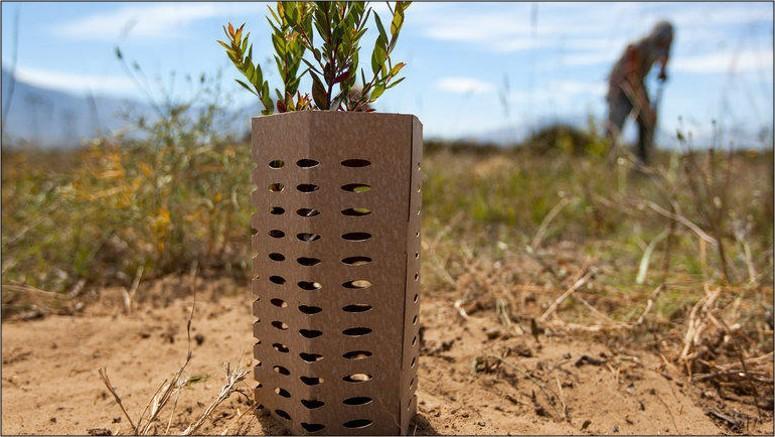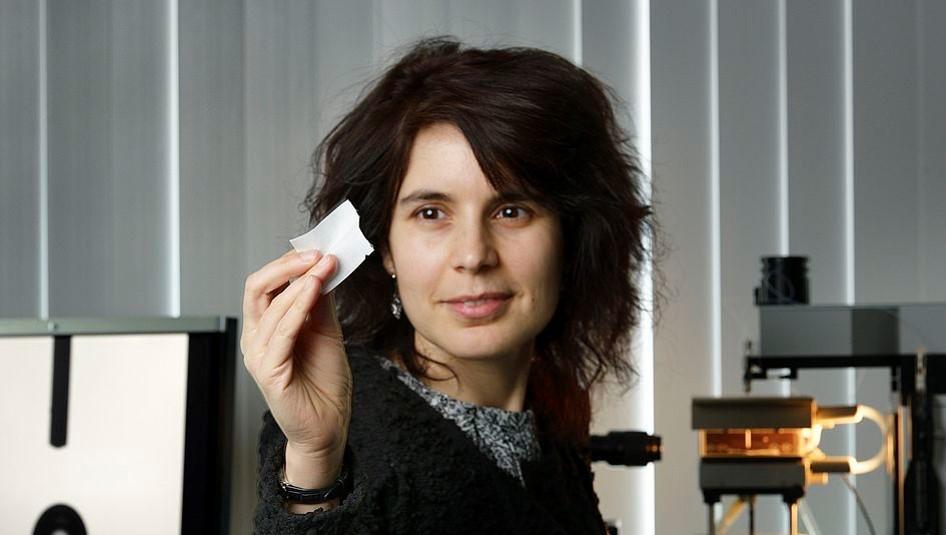Sponsh technology gathers dew at night to fight climate change drought
By Chris Welsch
Lourens Boot was on a camping trip with his family in Portugal in the summer of 2017 – one of the driest on record there – when he decided to act on an idea.
He had noticed that, despite the lack of rain, the things they left outside at night were wet with dew in the morning.
He had read about a Namibian desert beetle that survives by collecting dew from the air in the book “The Blue Economy” by the Belgian entrepreneur and author Gunter Pauli. The book was full of ideas about natural processes that can solve environmental and societal issues.

This made Lourens wonder if someone had explored a way to extract water from the air to help plants grow or provide drinking water. Lourens had left a job in the oil and gas industry, so he was ready to try his hand at clean tech. He had been working for The Ocean Cleanup, a non-profit group dedicated to removing plastic from the seas. He wanted to do something positive for nature and human beings.

Sponsh is developing tree guards that draw moisture from the air and providing saplings with water during their most fragile period.
“I just started googling to see if anyone was working on this idea,” Lourens recalled. “And one name kept coming up. So I called her.”
That name was Catarina Esteves, a Portuguese researcher who lives and works in Lourens’s home country, the Netherlands. Catarina, an associate professor at the Eindhoven University of Technology, had developed a fabric coating with polymers that could absorb water molecules from the air at night, when temperatures were cool, and then naturally ring it out the next day, as temperatures rose.
The company that arose from this conversation is called Sponsh, like sponge, and is the winner of the special category in the 2020 Social Innovation Tournament held by the European Investment Bank Institute. The prize comes with a €50 000 award. The competition recognises entrepreneurs who are creating businesses that address social problems.
Catarina was not surprised when Lourens called. She had been getting requests from companies and institutions regularly since publishing her paper about the invention in 2013. They all were eager to buy the fabric or develop it for sale. But Catarina had only made a few square centimetres of the fabric. There was much work to be done before it could be produced on a large scale.
“The difference between Lourens and the others was that he was patient. He understood it would take time” for more research and development, Catarina says.

Lourens Boot
Using his own funds initially, Lourens started building the company that became Sponsh. He now has a team of four full-time employees, including two researchers, as well as two part-time employees. Lourens is the chief executive, directing testing and pilot programmes from his base outside of Lisbon.
Sponsh initially received some government subsidies from a Dutch programme that supports startups using biomimicry – the strategy of studying nature for solutions to human design problems – and since then has received other grants, loans, and investments.
If Sponsh could fulfil the demand for its product right now, it would have €6 million in sales a year, Lourens estimates. “We’re not there yet” with the technology, he says, “but we’re getting closer.”
Sponsh is developing and testing tree guards with special inserts that draw moisture from the air at night when it’s cold, and then release it when the sun warms the guard and the air during the day, providing a sapling with 10 ml to 100 ml of water per day during its most fragile period. The guards would degrade naturally after providing a year or two of support to a young tree.
The benefits of such a system are manifold. It means clean water does not have to be transported from one place to another, reducing carbon while helping restore dry and damaged landscapes.

Catarina Esteves with the fabric that absorbs water molecules from the air at night.
Sponsh now must perfect the chemistry, making the product more adaptable to local conditions, able to absorb water under different levels of humidity and more capable of releasing water during the day. Right now, the temperature must reach 32°C for the material to release the water it has absorbed.
Sponsh will use its money from the Social Innovation Tournament on a large-scale pilot project – planting a thousand trees with Sponsh tree guards as part of a land restoration project called AlVelAl, located in southern Spain in Almeria. The project is a Commonland.org initiative, which is coordinating an effort to restore some 180 000 ha in the area. The prize money will go towards buying manufacturing equipment, creating the first pilot guards, and planting and monitoring.
Catarina says she is mainly passionate about pursuing research, but adds that it has been fascinating to see how her idea works in the real world. She hopes one day it can deliver clean water to people as well as plants.
“It’s interesting to see how a small piece of treated cotton fabric could turn into a solution that can address a really big societal problem,” she says.
Click here to learn more about the EIB Institute and its Social Innovation Tournament.